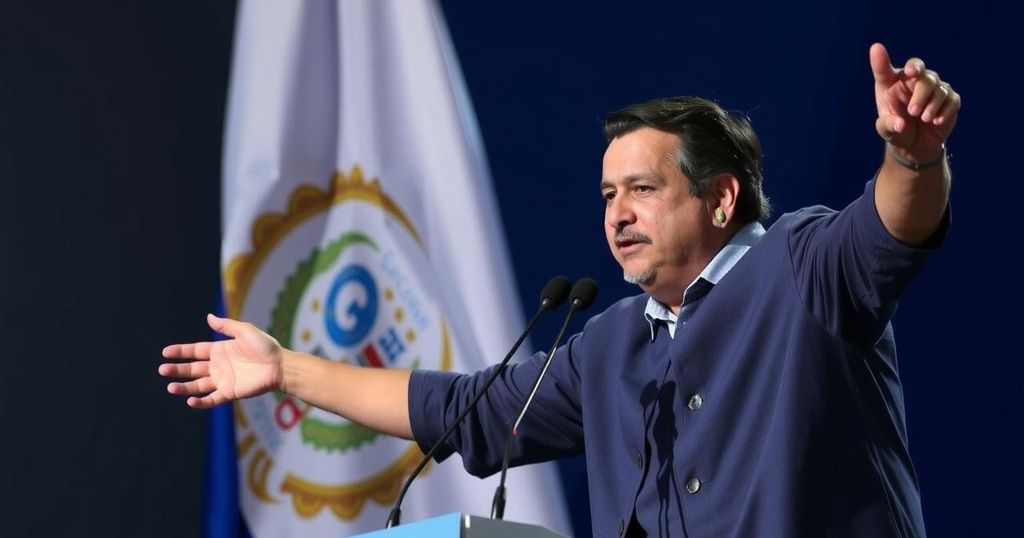In Uruguay’s recent presidential runoff, left-wing candidate Yamandú Orsi defeated sitting conservative candidate Álvaro Delgado. Orsi, a former history teacher and mayor, plans to prioritize national unity and moderate reforms while addressing pressing concerns like poverty and crime. The election underscores a global sentiment of voter discontent with incumbents, highlighted by a high turnout of nearly 90% at the polls.
In a closely contested runoff election, Álvaro Delgado, the candidate from Uruguay’s ruling conservative coalition, conceded defeat to left-wing challenger Yamandú Orsi in Montevideo on Sunday. Delgado expressed his concession with regret but acknowledged Orsi’s victory, which ignited celebrations among his supporters. Orsi, a former history teacher and mayor, promised to unite the nation, emphasizing the need to embrace diverse perspectives within the populace. With nearly 92% of ballots counted, Orsi secured approximately 49.56% of the votes, while Delgado garnered 46.17%, amid a remarkably high voter turnout of nearly 90%.
Despite the lack of enthusiasm among younger voters, Uruguay’s electoral campaigns refrained from engaging in the extreme anti-establishment sentiments seen in other nations, such as the United States and Argentina. Orsi’s ascent indicates a trend of voter dissatisfaction with the current administration, as evidenced by recent elections worldwide where voters have penalized ruling parties. However, Orsi, who identifies as a moderate, does not intend to introduce drastic changes, aligning with Delgado on significant issues like poverty reduction and combatting organized crime.
He is akin to his predecessor, representing continued market-friendly and welfare-oriented policies reminiscent of the Broad Front’s previous governance from 2005 to 2020, marked by substantial social reforms and commendable economic growth. Former President José Mujica, an influential figure in Uruguay’s recent history, lent his support to Orsi, highlighting the significance of a citizenry that respects democratic institutions. In his victory speech, Orsi committed to fostering national dialogue and promised that work towards a better future would commence immediately.
The recent presidential election in Uruguay characterized a pivotal moment in the South American nation’s political landscape. The contest was a reflection of widespread global dissatisfaction with incumbent parties. With almost a decade of control in the hands of the Broad Front, the election also marked a shift from the conservative rule that began five years ago. This electoral transition comes amid concerns regarding economic stability and social issues within Uruguay, mirroring larger trends seen in other democracies where voters are increasingly rejecting the status quo in favor of new leadership.
The election of Yamandú Orsi as Uruguay’s president after a hard-fought runoff against Álvaro Delgado signifies a pivotal shift in the nation’s leadership landscape. Orsi’s commitment to national unity and governance reflects a desire for collaboration amidst a politically fragmented society. The strong voter turnout showcases public engagement and dissatisfaction with the existing government, indicative of larger global trends favoring change and reform. As Orsi prepares to lead, his moderate approach may provide continuity while addressing the socio-economic challenges facing the nation.
Original Source: www.coastreporter.net






